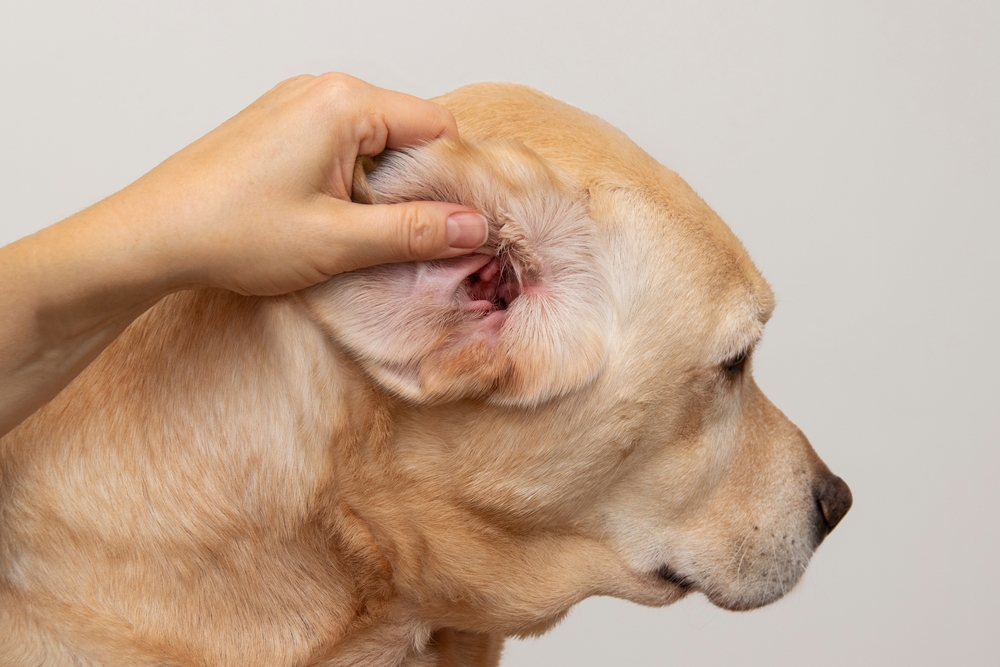Is your pet’s constant scratching driving you bonkers? They may have an allergy. Many pets are affected by allergies, which can lead to significant health problems. Our Monte Vista Animal Hospital team often treats pets with allergic conditions. We describe allergies that affect pets and explain how these conditions are addressed.
Allergens that affect pets
Your pet can have an allergic reaction to anything in their environment. However, the most common allergens that affect pets include:
- Fleas — Fleas may be tiny, but their bite is mighty, especially if your pet has flea bite dermatitis (FAD). Pets with this condition are allergic to proteins in the flea’s saliva, and a single flea bite can trigger significant skin irritation and inflammation, leading to excessive itching and scratching. Affected pets may lick, bite, scratch, and rub continuously, and they often groom away the fleas, making it difficult for owners to realize what is causing their pet’s problem. However, the fleas may leave behind flea dirt (i.e., feces) that appear as tiny black specks in your pet’s coat. Other signs include red lesions on their abdomen and inner thighs and hair loss on their lower back.
- Environmental allergens — Environmental allergens, such as plant and tree pollen, dust mites, and mold spores, can trigger a pet’s allergic reaction. This condition is referred to as atopy in veterinary medicine. Atopic pets often have chronic skin and ear infections and may also have anal gland complications. Depending on the environmental allergen causing your pet’s reaction, their signs may be seasonal or year-round. In some cases, cats affected by environmental allergens have respiratory signs such as sneezing and ocular and nasal discharge.
- Food — Food allergies in pets aren’t as common as many people think, but they can occur. Ingredients that most commonly cause food allergies in pets include proteins such as beef, chicken, eggs, soy, and dairy products. Chronic ear and skin infections are commonly seen in pets with food allergies, and many have excessively itchy paws. Some pets also have gastrointestinal (GI) signs such as vomiting, diarrhea, and excessive gas.
Diagnosing allergies in pets
Most allergic pets present with itchiness, skin lesions, and hair loss, and determining the causative agent can be difficult. To determine which allergens are affecting your pet, our Monte Vista Animal Hospital team performs diagnostic tests that include:
- History — We ask for a detailed history about when your pet’s signs first appeared, if they have gotten better or worse, and if they have ever had these signs before.
- Physical exam — By thoroughly examining your pet from nose to tail, we can see their lesions and look for evidence of fleas or other factors that may help us make a diagnosis.
- Culture — If your pet has a skin or ear infection, we will take a culture, which can help us pinpoint their allergen and provide effective treatment to clear the infection.
- Skin scraping or biopsy — In some cases, we may take a skin scraping or biopsy to help determine your pet’s allergy cause.
- Allergy testing — We perform allergy testing if we suspect your pet has atopy. These tests help identify the allergens that trigger your pet’s reaction, and we can use this information to make allergen immunotherapy.
- Food elimination diet — If we think your pet has a food allergy, we will recommend a food elimination diet using a novel protein or hydrolyzed diet. Your pet must remain on this diet for about eight weeks, and during this time, they can’t have any unsanctioned food, including treats, table scraps, and flavored medicated chews.
Treating allergies in pets
Pets’ allergies can’t be cured but their signs can be effectively managed, typically using a multimodal approach. Treatment strategies may involve:
- Bathing — Bathing your pet can remove allergens from their skin and coat to help reduce their effect.
- Steroids — Steroids are often needed, especially in the early stages, to address severe inflammation and itchiness.
- Anti-itch medications — Several anti-itch medications are available, and our team will help determine the best product for your itchy four-legged friend.
- Antimicrobials — If your pet has a skin or ear infection, we will prescribe an appropriate antimicrobial to clear the infection.
- Supplements — We may prescribe supplements, such as omega-3 fatty acids, to help promote your pet’s skin health.
- Immunotherapy — For atopic pets, we may recommend immunotherapy to help desensitize your four-legged friend to the allergen causing their reaction.

Pet allergies can be difficult to control, but with the right diagnosis and management plan, we can help your itchy pet. Contact our Monte Vista Animal Hospital team today so we can help alleviate your allergic pet’s discomfort.






Leave A Comment